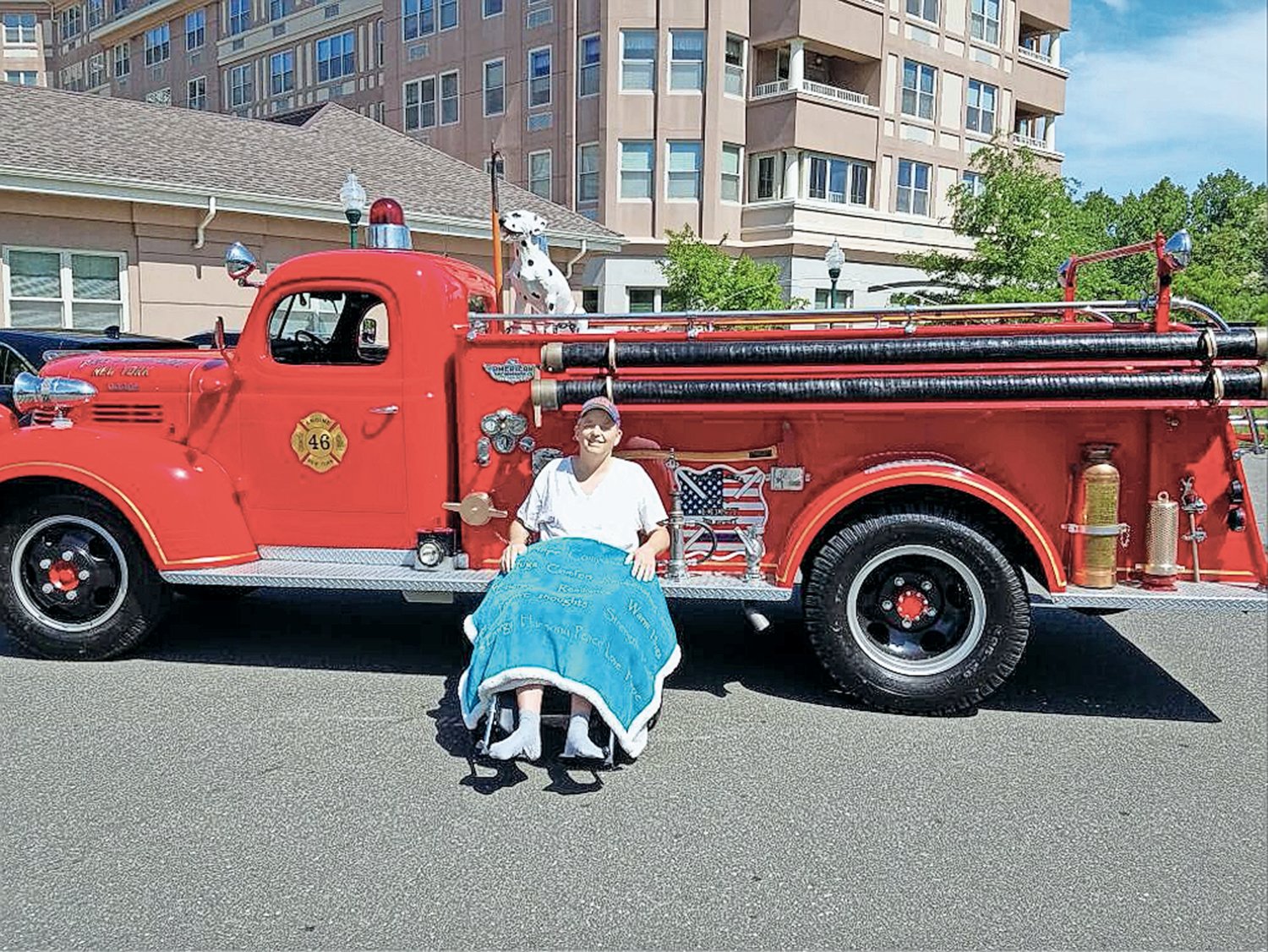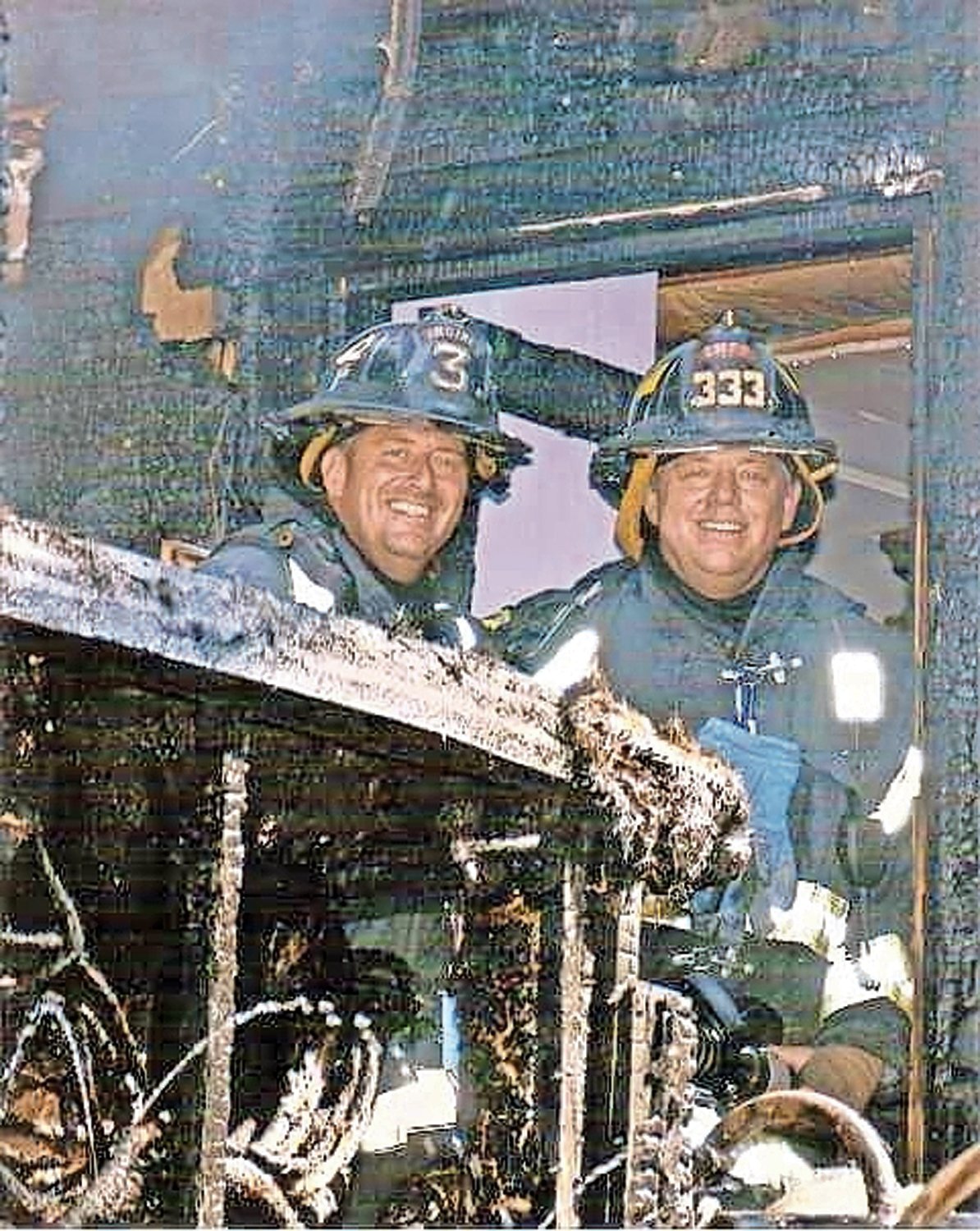Thursday, May 2, 2024
Foundation named after Pfeifer going strong
“Do the right thing, even when no one is looking,” was Ray Pfeifer’s motto, according to his friends and family. Pfeifer, who was a member of the East Meadow Fire Department and the Fire Department of New York, died in May of 2017 at the age of 59, after developing kidney cancer in 2009 from the time spent at ground zero.
The Ray Pfeifer Foundation was established in 2018 by FDNY members. The foundation benefits first responders who have medical issues from Sept. 11 that are not covered by insurance.
The foundation has raised more than $2 million since its inception, its treasurer, Robert Ostrofksy said. And roughly 150 people have been helped by the foundation’s efforts.
“He got a lot done,” Ostrofksy said of Pfeifer. “He was always trying to help and do the right thing and that’s why we’re doing what we do. To carry on his legacy.”
It only makes sense that a foundation was made in Ray’s honor, said his brother, firefighter Joe Pfeifer Jr.
“Ray always wanted to help out,” Joe said. “Ray always had to go everywhere in a wheelchair and it wasn’t easy. Before he died he wanted to raise money so that the FDNY had a van that was handicap accessible.”
But that type of van costs roughly $70,000, Joe said. The money was raised for the van through a fundraiser at Mulcahy’s in Wantagh.
To apply for assistance, completion of an application online is required. The executive team, which is comprised of retired FDNY firefighters and the board will then review it.
Pfeifer, who grew up in Levittown, joined the EMFD in 1978 and became its youngest captain in 1982. He served alongside John J. O’Brien Sr. as captain of Engine Company #3.
“He had a wonderful personality and worked incredibly hard,” O’Brien said. “He was a very well decorated firefighter.”
Joe said his brother loved being a firefighter. “Ray wanted to be a fireman since he was a baby,” Joe said. Joe Pfeifer Sr. was also a firefighter in East Meadow.
Ray Pfeifer joined the New York City Fire Department Engine 40 after graduating from high school in 1987.
“He loved the brotherhood,” Joe said. “It’s one of the best things you can have in your life. As far as I am concerned, as far as Ray was concerned, as far as our father was concerned the brotherhood was the best part of it all.”
Pfeifer was a very knowledgeable fireman. “He made me and a lot of other guys better firemen,” Joe added. “When I wanted to join he wouldn’t let me rest. He made sure I knew everything I needed to know.”
Pfeifer was golfing the morning of the attacks after switching shifts with a fellow FDNY firefighter. Once he heard of the attacks he raced home and worked tirelessly for the next eight months searching the rubble for survivors.
“Ray had survivors guilt,” Joe said. “He drove down from golfing that morning, called me up and we worked for hours and hours looking for people.”
He became a national advocate for the Zadroga 9/11 Health and Compensation Act, which provided aid and monitoring to volunteers, survivors and first responders from the Sept. 11 attacks. In 2015 Pfeifer traveled to Washington, D.C. more than 12 times to fight for first responders’ rights to receive health care coverage. Federal benefits were about to expire and Pfeifer believed that that that wasn’t right.
“During the time before Ray went to Washington, D.C. there was little to no coverage for people who got sick from 9/11,” Joe said. “The city fire department did not recognize 9/11 cancer.”
Retired East Meadow firefighter Kenny Specht, who also got sick with a Sept. 11 related illness, asked Pfeifer to help him fight for more coverage from the FDNY.
“Ray understood the struggle and wanted to be his poster child,” Joe said. “He was good at it too. He had the attitude of: ‘I got cancer, I am going to die, how can I help somebody else.’”
In 2019, the “Never Forget Heroes: James Zadroga, Ray Pfeifer, and Luis Alvarez Permanent Authorization of the September 11 Victim Compensation Act” was passed to provide financial support for 9/11 first responders, survivors and their families.
“It was a lot of hard work on Ray’s part,” Joe said. “He used to bang on people’s doors to get their attention and get meetings. He would chase them down hallways on his scooter.”
The new act was basically an extension of the Zadroga Act. Among other rights, it ensured that people could file claims to get money for their health needs until October of 2090. Ray was going down to D.C. for more than three years fighting for these rights, Robert Ostrofksy said.
“It was the right thing to do and Ray was passionate about it,” Ostrofksy added. “It pissed Ray off. So many people sacrificed their lives on that day and they deserved the help.”
To donate or apply for help from the foundation visit theraypfeirferfoundation.org.
HELP SUPPORT LOCAL JOURNALISM
The worldwide pandemic has threatened many of the businesses you rely on every day, but don’t let it take away your source for local news. Now more than ever, we need your help to ensure nothing but the best in hyperlocal community journalism comes straight to you. Consider supporting the Herald with a small donation. It can be a one-time, or a monthly contribution, to help ensure we’re here through this crisis. To donate or for more information, click here.
Sponsored content
Other items that may interest you









